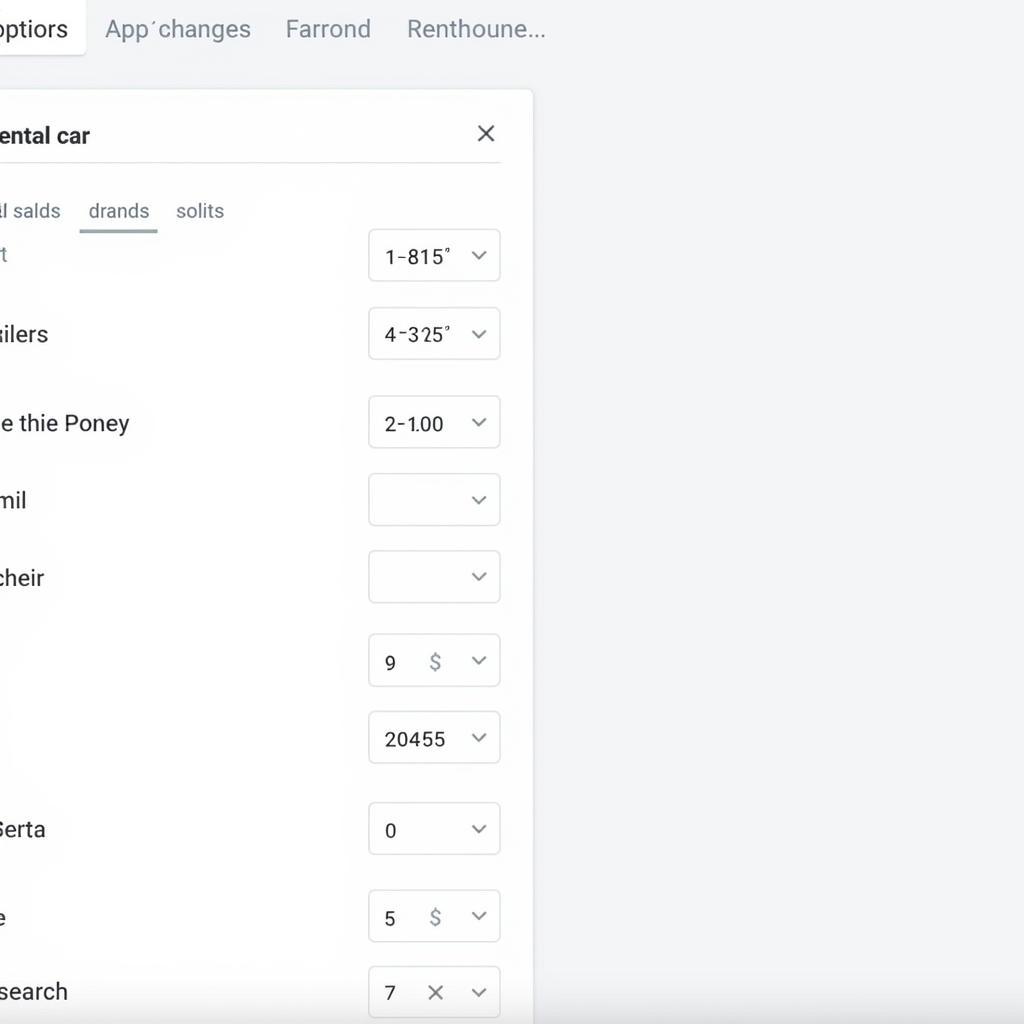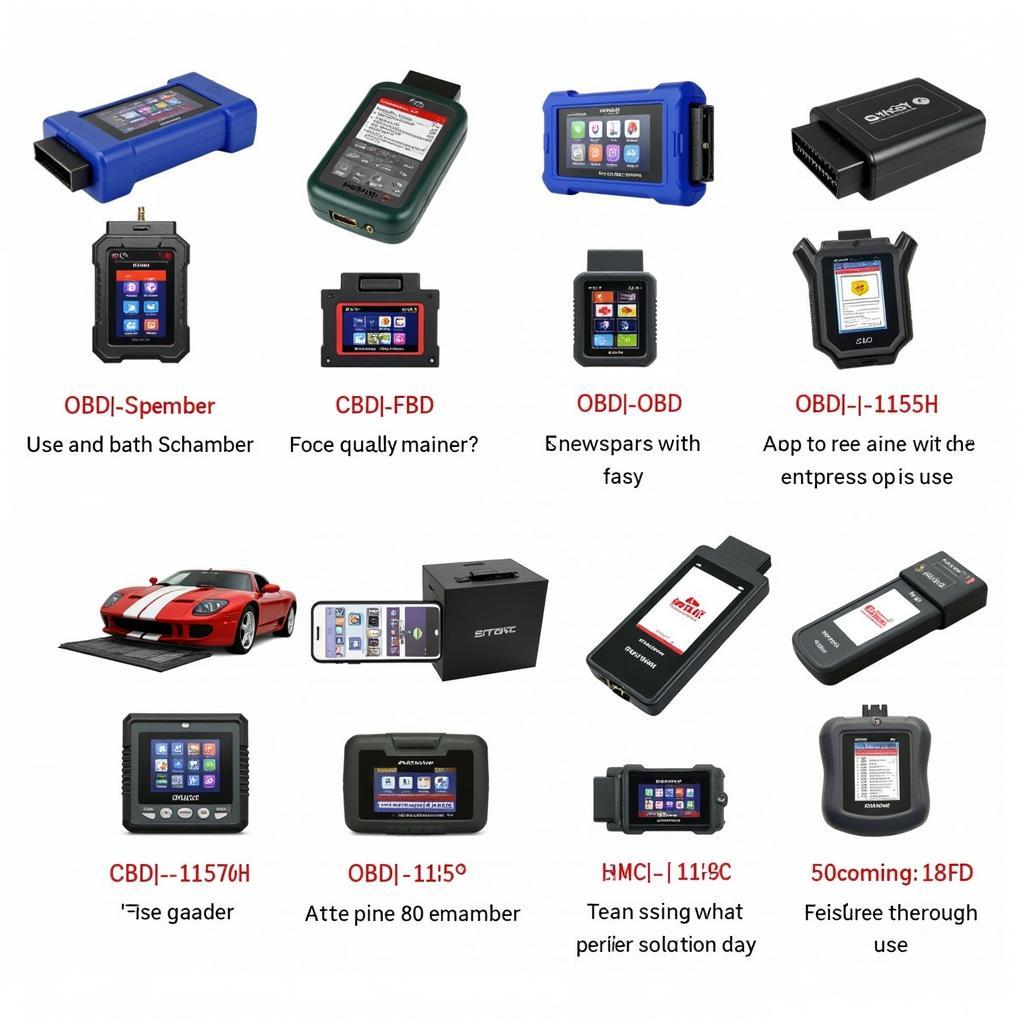A Car Inspection Scanner, also known as an OBD2 scanner, is an essential tool for any car owner, mechanic, or automotive enthusiast. This device acts as a window into your car’s computer system, allowing you to read and understand the diagnostic trouble codes (DTCs) that are triggered when there’s an issue with your vehicle.
[image-1|car-inspection-scanner-in-action|Car inspection scanner plugged into a car’s OBD2 port|A close-up image of a car inspection scanner actively plugged into the OBD2 port of a vehicle. The scanner’s screen displays diagnostic information, indicating its active use in assessing the car’s systems.]
Why are Car Inspection Scanners Important?
In today’s technologically advanced vehicles, gone are the days of relying solely on mechanical expertise to diagnose car problems. Modern cars are equipped with complex electronic systems that control everything from engine performance to safety features. When a problem arises, these systems generate DTCs, which are stored in the car’s computer. A car inspection scanner retrieves these codes, translating them into understandable language, and providing valuable insights into the root cause of the issue.
[image-2|mechanic-using-car-scanner-in-garage|Mechanic using a car scanner to diagnose a vehicle problem|A mechanic in a professional garage environment leans over the hood of a car, using a high-end car inspection scanner to diagnose a problem. The image should convey a sense of expertise and the importance of diagnostic tools in modern car repair.]
Types of Car Inspection Scanners
Car inspection scanners come in a variety of shapes and sizes, catering to different needs and budgets.
-
Basic Code Readers: These entry-level scanners are the most affordable option. They can read and clear basic DTCs, making them suitable for DIY enthusiasts who want to understand and address simple car problems.
-
Mid-Range Scanners: Offering more advanced features than basic code readers, these scanners provide live data streams, allowing you to monitor various engine parameters in real-time. They may also offer some bi-directional control, enabling you to activate certain car components for testing.
-
Professional-Grade Scanners: Used by experienced mechanics and dealerships, these high-end scanners provide comprehensive diagnostic capabilities. They offer extensive code libraries, advanced programming functions, and access to manufacturer-specific data, making them ideal for complex repairs.
[crnt meaning on car scanner]
How to Use a Car Inspection Scanner
Using a car inspection scanner is a relatively straightforward process:
-
Locate the OBD2 Port: The OBD2 port is typically located under the dashboard on the driver’s side.
-
Connect the Scanner: Turn off the ignition and plug the scanner into the OBD2 port.
-
Turn on the Ignition: Turn the key to the “on” position but don’t start the engine.
-
Read the Codes: The scanner will establish communication with the car’s computer and display any stored DTCs.
-
Interpret the Codes: Consult the scanner’s manual or an online database to understand the meaning of the codes.
-
Clear the Codes: After addressing the underlying issue, use the scanner to clear the DTCs.
[image-3|obd2-port-location-in-car|Location of the OBD2 port inside a car|A well-lit image highlighting the OBD2 port’s location within a car’s interior. The image should clearly show the port and its surrounding area, making it easy for viewers to identify in their own vehicles.]
Benefits of Using a Car Inspection Scanner
Investing in a car inspection scanner can provide numerous benefits:
-
Early Problem Detection: By regularly scanning your car, you can detect potential issues before they escalate into major problems, saving you time and money on costly repairs.
-
Accurate Diagnostics: Car inspection scanners eliminate the guesswork from car repairs, providing accurate DTCs that pinpoint the source of the problem. This allows for targeted repairs, reducing unnecessary expenses.
-
Improved Car Maintenance: Regular scans help you stay on top of your car’s maintenance needs, ensuring optimal performance and longevity.
-
Increased Resale Value: A well-maintained car with a documented service history, including scan reports, is more attractive to potential buyers, leading to a higher resale value.
[car electrical scanner]
Choosing the Right Car Inspection Scanner
Selecting the right car inspection scanner depends on your individual needs and budget. Consider the following factors:
-
Frequency of Use: If you only plan on using the scanner occasionally for basic diagnostics, a basic code reader might suffice. However, if you’re an avid DIYer or professional mechanic, investing in a more advanced scanner would be beneficial.
-
Vehicle Compatibility: Ensure the scanner is compatible with the make, model, and year of your car. Some scanners are specifically designed for certain car brands, while others are universal.
-
Features: Determine the features that are important to you, such as live data streaming, bi-directional control, and manufacturer-specific code libraries.
[scan tool diagnosis]
Common Car Inspection Scanner FAQs
Q: Can I use any car inspection scanner on my car?
A: Not necessarily. While most cars manufactured after 1996 use the standard OBD2 protocol, some vehicles might require manufacturer-specific scanners.
Q: Will using a car inspection scanner void my car’s warranty?
A: No, using a car inspection scanner will not void your car’s warranty. In fact, regular diagnostics can help you identify and address potential issues before they lead to warranty claims.
Q: Can a car inspection scanner fix my car problems?
A: No, a car inspection scanner is a diagnostic tool, not a repair tool. It helps you identify problems, but it doesn’t fix them.
[used car vin scanner]
Conclusion
A car inspection scanner is an invaluable tool for anyone who owns, repairs, or simply wants to understand their car better. By providing access to the inner workings of a vehicle’s electronic systems, these devices empower car owners and mechanics to diagnose and address problems efficiently and effectively. Whether you’re a seasoned professional or a DIY enthusiast, investing in the right car inspection scanner can save you time, money, and frustration in the long run.
For personalized assistance in choosing the right car inspection scanner for your needs, contact ScanToolUS at +1 (641) 206-8880 or visit our office at 1615 S Laramie Ave, Cicero, IL 60804, USA. Our team of experts is dedicated to providing exceptional customer service and helping you find the perfect diagnostic tool for your vehicle.


